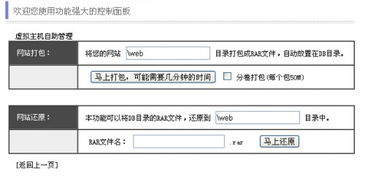Title: Understanding Programming Language APIs
In the realm of software development, Application Programming Interfaces (APIs) serve as crucial bridges between different components of a system, allowing them to communicate and interact effectively. When it comes to programming languages, APIs play a fundamental role in enabling developers to harness the full potential of the language's capabilities, whether it's for accessing libraries, handling data structures, or interfacing with external systems. Let's delve into the significance of APIs in programming languages and explore some key aspects across various languages.
1. What is a Programming Language API?
A programming language API refers to a set of rules, protocols, and tools provided by a programming language to facilitate interaction with its features and functionalities. It serves as a contract between different software components, defining how they can communicate and exchange information. APIs abstract the underlying complexity of the language, providing developers with simplified interfaces to perform tasks efficiently.
2. Types of Programming Language APIs:
Standard Libraries:
Most programming languages come with standard libraries that provide a wide range of functions and utilities for common tasks such as string manipulation, file I/O, and mathematical operations. These libraries expose APIs that developers can leverage to streamline development.
Thirdparty APIs:
In addition to standard libraries, programming languages often have a vast ecosystem of thirdparty libraries and frameworks developed by the community. These libraries extend the language's capabilities in specific domains such as web development, data science, and machine learning. Developers can integrate these APIs into their projects to access advanced functionalities without reinventing the wheel.
Languagespecific APIs:
Some programming languages offer languagespecific APIs tailored to their unique features. For example, Python provides APIs for working with iterators, generators, and decorators, while JavaScript offers APIs for handling asynchronous operations through promises and async/await syntax.3. Importance of Programming Language APIs:
Productivity:
APIs simplify complex tasks and reduce development time by providing prebuilt components and abstractions. Developers can focus on implementing highlevel logic without getting bogged down by lowlevel details.
Interoperability:
APIs facilitate interoperability between different software components, enabling seamless integration of disparate systems. This interoperability is essential in modern software development, where applications often rely on multiple technologies and platforms.
Code Reusability:
By encapsulating functionality into reusable APIs, developers can write modular and maintainable code. Code reusability not only improves development efficiency but also enhances code quality and scalability.
Ecosystem Growth:
A rich ecosystem of APIs fosters innovation and collaboration within the developer community. Thirdparty APIs extend the capabilities of programming languages, empowering developers to build diverse and sophisticated applications.4. Examples of Programming Language APIs:
Python:
Python's standard library includes APIs for working with data structures, file I/O, networking, and more. Additionally, Python's ecosystem boasts a plethora of thirdparty libraries such as NumPy for scientific computing, Django for web development, and TensorFlow for machine learning.
JavaScript:
In addition to the core APIs provided by web browsers for DOM manipulation and event handling, JavaScript offers a rich ecosystem of thirdparty libraries and frameworks like React.js for building user interfaces, Node.js for serverside development, and Express.js for building web servers.
Java:
Java provides extensive APIs through its standard library (java.lang, java.util, etc.) for tasks such as concurrency, I/O operations, and data manipulation. Furthermore, the Java ecosystem features popular frameworks like Spring for enterprise application development and Hibernate for objectrelational mapping.
5. Best Practices for Using Programming Language APIs:
Read the Documentation:
Before using an API, thoroughly read its documentation to understand its capabilities, usage patterns, and potential limitations. Documentation provides valuable insights into how to effectively utilize the API in your projects.
Follow Conventions:
Adhere to the conventions and best practices recommended by the programming language community when using APIs. Consistent coding style and naming conventions enhance code readability and maintainability.
Error Handling:
Implement robust error handling mechanisms to gracefully handle exceptions and errors that may arise when interacting with APIs. Proper error handling ensures the stability and reliability of your applications.
Versioning:
Be mindful of API versioning to ensure backward compatibility and smooth transitions between different versions. Upgrading to newer versions of APIs should not break existing functionality in your applications.In conclusion, programming language APIs serve as essential tools for developers, enabling them to harness the full power of programming languages and build robust, scalable, and interoperable software solutions. By understanding the significance of APIs and following best practices for their usage, developers can streamline development workflows and create innovative applications across various domains.
版权声明
本文仅代表作者观点,不代表百度立场。
本文系作者授权百度百家发表,未经许可,不得转载。











